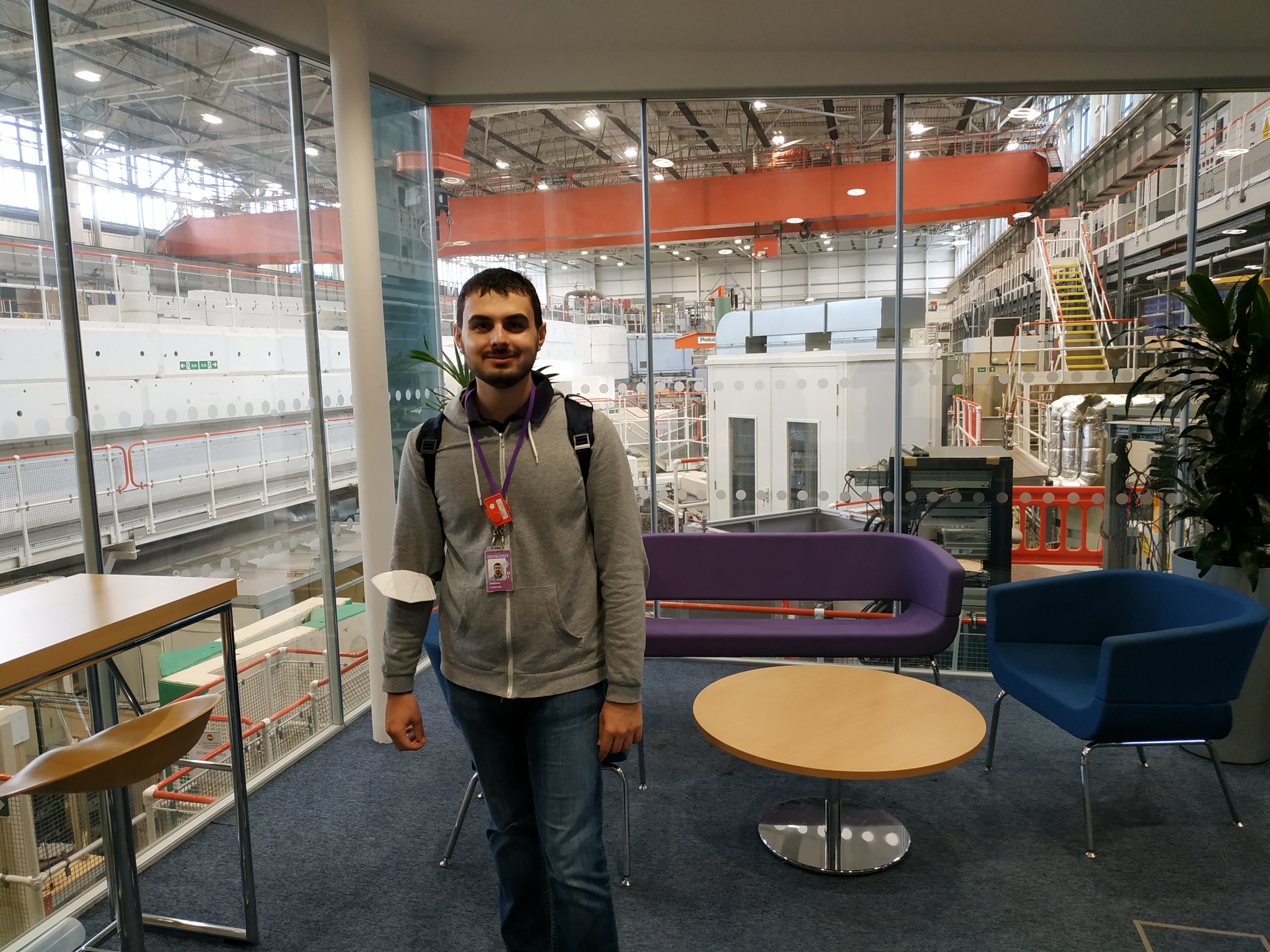Thanks to Fusenet I’ve been able to do part of my master thesis in two of the major scientific research centres in England.
The first part of my mission was at the Joint European Torus, situated in Culham, Oxfordshire, where I was able to see the machine where the data that I started analysing at my university come from. The main goal of my mission was the analysis of the JET shots acquired during C42 campaign to determine the fuel ion ratio in the plasma using single-crystal diamond detectors. Apart from acquiring many more data that greatly improved the statistic for my thesis, I’ve been able to observe a shift in the DD Compton edge peak, and, thanks to the colleagues of my team, we were able to attribute it to the toroidal current, that caused a sort of doppler effect.
The second part of my mission was the characterization of the diamond detector itself. For this purpose, I was kindly invited at the ISIS neutron and muon centre, situated at Harwell Campus, not far from Culham.
I was a part of the NILE experiment, were I had a 14 MeV neutron generator at my disposal (under the supervision of a very experienced scientist, Carlo Cazzaniga, whom I thank again for his patience to all of my questions).
We used a series of diamond detectors, activation foils and a fission chamber first to determine the neutron yield of the DT source, that just arrived after a revision in America, then to study different diamond detectors and electronic chains under different irradiation conditions. We were able to see a polarization effects in our sample and to find a way to attenuate it, restoring the original energetic resolution of the detector. I also was introduced to a very practical part of neutron spectroscopy, and I familiarized with all the cables, electronic components, codes and various equipment needed to run an experimental laboratory.
During my stay I also had the opportunity to enhance my cultural knowledge, by visiting the cosmopolitan city of London and the many parks, colleges, and museums of Oxford. I had the opportunity to meet new people from other cultures and tied friendships that I hope will last much longer than my stay in England, both inside the professional sphere and outside of it.
Perhaps I could have gone studying abroad even without Fusenet help, but its support was the spark that made it possible, and for that I thank the Fusenet team and I’ll strongly recommend Fusenet to any other student willing to study fusion in the future.

